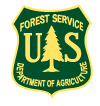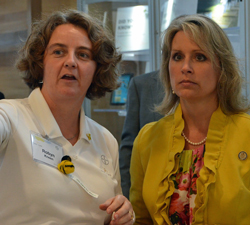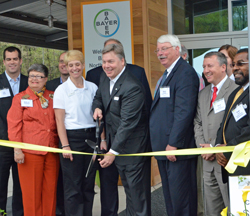 In honor of Earth Day today, the U.S. Forest Service is seeking proposals that expand wood energy use and support responsible forest management. This news release says the service is also offering a Wood Energy Financial App to help business leaders see a positive bottom line for these efforts.
In honor of Earth Day today, the U.S. Forest Service is seeking proposals that expand wood energy use and support responsible forest management. This news release says the service is also offering a Wood Energy Financial App to help business leaders see a positive bottom line for these efforts.
“USDA through the Forest Service is supporting development of wood energy projects that promote sound forest management, expand regional economies, and create new jobs,” said Agriculture Secretary Tom Vilsack. “These efforts, part of the Obama Administration’s ‘all of the above’ energy strategy, create opportunities for wood energy products to enter the marketplace.”
“Building stronger markets for innovative wood products supports sustainable forestry, reduces wildfire risk, and creates energy savings for rural America,” said Forest Service Chief Tom Tidwell.
Under the Forest Service’s Wood-to-Energy Grant program, about $2.8 million will be made available to help successful applicants complete the engineering design work needed to apply for public or private loans for construction and long-term financing of wood energy facilities. Another $1.7 million from the Statewide Wood Energy Team cooperative agreement program will help public-private teams make advancements in wood energy.
The Wood Energy Financial App that allows users to do a simple and quick analysis to see if wood energy is a viable alternative for their community or small business. You can dowmload the app here.






 Did you know Ag Leader offers a variety of
Did you know Ag Leader offers a variety of 



